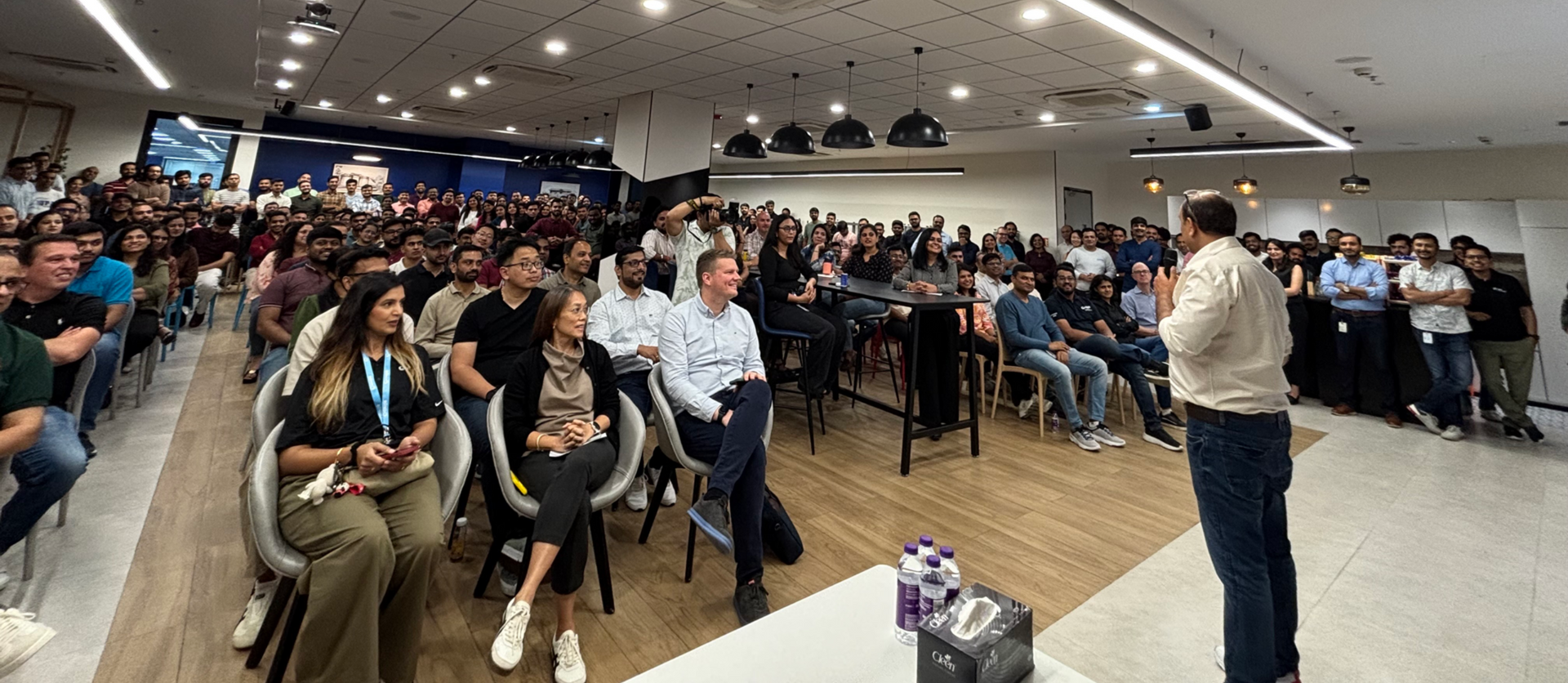3 Ways Coupa’s Development Team Designs Effective Search Functionality

Effective search functionality is critical to enhancing Business Spend Management (BSM), especially during economic downturns when supply chain issues or travel expenses could play major roles in a business’s success. However, not all searches surface the most relevant results or provide a user-centric experience.
For many engineers who want to design effective search, they know that inadequate functionality can lead to frustrating user experiences, poor purchasing decisions, and even compliance issues. So, how can engineers make search functionality more effective for BSM professionals?
Here are three considerations for designing effective search that our development team uses at Coupa.
1. Start with good data
The key to effective search functionality starts with rich, high-quality, current data.
Rich data
When designing search functionality, it’s important to include clean-fielded, basic data, like product names and prices. But more effective search happens when you layer in rich data, such as detailed descriptions, images, part numbers, manufacturer information, and more. For example, if a person wants to search by brand, part number, or use, that information must be part of the data. If it’s not, users may encounter irrelevant search results — or, worse, no search results at all.
High-quality data
Like many things, “garbage in” leads to “garbage out.” It does not help the search experience to add large volumes of poor, irrelevant data. For instance, if you have a list of items with accurate titles but unstructured or unclear descriptions, it might be better to avoid including those descriptions. The information should also be relevant and specific to the data. For example, generic placeholder text — like TBD, N/A, or office supply — in fields rarely adds value.
Current data
When users search, they want current information instead of outdated results. Many search algorithms are even biased toward more recent information. While this is a balance with performance considerations, keeping information curated so it is up to date and actively indexed makes for more effective search.
2. Use best-in-class search technology
After years of continuous improvement, search technology is more robust and effective than ever. Doug Cutting originally wrote Lucene in 1999, which was his fifth search engine. Today, Lucene is the foundation for both Elasticsearch
and SOLR, as well as a wealth of other search engine technologies. At Coupa, we use Elasticsearch as our search technology foundation.
Here are several things search technology does that a traditional relational database does not do.
Tokenize text into words
People rarely know the full title or phrase for what they are searching. Instead, they usually expect to type a few words and find what they need. Tokenization breaks all data into words so that can happen, and it must work with every language. At Coupa, that’s why we use Unicode Text Segmentation
to support global companies.
Understand the language
Modern search technology understands the formal and informal nuances of languages across the world. For example, a person might type a plural or a singular word, even when they likely expect to find both in search results. Similarly, a person might accent a word or not, regardless of whether the formal language says it should be accented. Still, they probably want both versions to appear in search results. At Coupa, our shopping search
supports over 30 different language models.
Technology that handles mistakes
End users make mistakes. They mistype or misspell. Search technology can check near variations to find matches. At Coupa, for instance, we use Elasticsearch to find spelling equivalents of terms that users may spell incorrectly in their search queries.
3. Iterate, iterate, iterate
There is no silver bullet with search. The best search comes from constant improvement. Google, for instance, changes their algorithm over 500 times per year. Similarly, our development team at Coupa finds a balance between algorithm changes being too conservative and slow to change versus making too many changes too quickly, which can disrupt customer satisfaction. Here are a few ways that we iterate on our approach to effective search.
Analyze the data
Search is extremely data-sensitive. An algorithm that works well on some data may work poorly on other data. That’s why it’s so important to analyze the data and understand its nuances. At Coupa, we analyze customer data and community data to do this. That data is then put to use in our AI-based classifiers to make the search results most relevant for a given customer's users and products.
Monitor user behavior
Search is ultimately about connecting a real-life user to search technology. To do that, it’s imperative to fully understand user behavior to achieve the right balance in search functionality. Our method of doing this at Coupa is to use our internally developed customer tool, Content Insights, to understand the searches being run and how effective they are.
Tune for probability, not perfection
There is often no "right" answer in search since the exact same search might mean one thing to one user and something else to another. Ultimately, tuning search for user behavior is a probability game — you have to engineer search functionality to provide the most relevant or likely results that address a user’s search intent.
Effective search is a journey and a never-ending one at that, but if users can quickly and easily find what they are searching for, they will thank you for it.

As we welcome the Year of the Fire Horse, our global village comes together to celebrate Lunar New Year — a moment for renewal, reflection, and bold forward momentum for #AllOfUs. This year’s celebration is led by our Coupa Exceed Employee Resource Group, whose leadership continues to create space for cultural connection, shared learning, and deeper belonging across our communities. Through its programming and storytelling, Exceed ERG helps turn moments like this into meaningful global experiences for all Coupanians. In the lunar zodiac, the Horse symbolizes energy, progress, and determination. The Fire element brings passion, visibility, and transformation. That spirit comes to life in how Exceed leads this celebration: Moving with purpose Amplifying voices and traditions Bringing our global community closer together From red envelopes and reunion dinners to travel, lanterns, and time with loved ones, Lunar New Year reminds us that while our backgrounds may be different, the values that connect us are shared.

Engineers at Coupa are shaping what’s next, through code, curiosity, impact, and a shared commitment to building better systems for people and businesses. In celebration of Engineers Week 2026, we asked a few of our engineers how they’re transforming the future: their own, Coupa’s, and the communities we serve. Their answers reflect a profession grounded in purpose, growth, and possibility.

As we continue our Black History Month celebration, Coupa’s Engage employee resource group is proud to spotlight more voices whose journeys reflect the lasting impact of Black innovation in technology. Building on our first feature, this blog highlights Coupanians whose paths into tech weren’t always linear but whose perspectives are shaping how technology, people, and possibility intersect at Coupa. Through the stories of Elise Huggins, Rashida Jones, and Johnny White, we’re reminded that innovation is strongest when it’s grounded in imagination, inclusion, and human purpose.

As Coupa celebrates 20 years of innovation, growth, and impact, it’s the people who’ve grown alongside the company who best reflect what that journey really looks like. For Sukhada Bardapurkar, Partner Success Manager, the last 10 years at Coupa have been shaped by curiosity, connection, and a deep sense of ownership in the results she helps deliver. “At every stage of my career here, I’ve genuinely cared about the impact of my work and how it enables both me and the team to move forward,” Sukhada shares. “Owning results motivates me and it pushes me to stay curious and solve problems proactively.”

At Coupa, we believe great work deserves to be recognized, not just for outcomes but for the commitment, ownership, and impact it brings. From weekly wins to milestone achievements, celebrating excellence is part of how we show up for one another. As part of our evolving rewards and recognition program, the Coupa India Leadership Team introduced the Standout Performer Award (Monthly) and Extra Mile Award (Quarterly) to spotlight Coupanians whose contributions drive individual, team, and business success. We’re proud to recognize our Stan dout Performer Award winner for November 2025 and invite you to join us in celebrating his achievement.

As we celebrate Black History Month, Coupa’s Engage employee resource group honors the resilience, creativity, and leadership of Black pioneers whose innovation has shaped technology and artificial intelligence. This year’s theme, “ Innovation and the Impact of Black Pioneers in Tech and AI ,” recognizes trailblazers who challenged barriers, introduced new ways of thinking, and built pathways for future generations. Through the voices of Coupanians across our organization, we celebrate how those legacies continue to inspire us to innovate with purpose, push boundaries, and help shape what’s next at Coupa.

Chien-Yi Tsai’s career hasn’t followed a straight line, and that’s exactly what led him to innovation. Looking back, Chien-Yi doesn’t see a single defining moment that made him an inventor. Instead, he sees a series of questions, challenges, and moments of curiosity that gradually shaped him into the engineer he is today. His focus was never on earning a patent, but on continuous learning, solving meaningful problems, and pushing beyond what felt comfortable. “I never set out with the goal of becoming a patent inventor,” Chien-Yi shares. “I was focused on learning, solving real problems, and pushing myself beyond what felt comfortable.” That mindset ultimately led him to Coupa, and to invention. A Career Built on Curiosity Like many engineers, Chien-Yi’s early career was about building strong foundations: understanding how systems work, weighing technical tradeoffs, and learning how technology can solve real business challenges. Each role added depth such as stronger technical skills, broader systems thinking, and a growing appreciation for collaboration. When Chien-Yi joined Coupa, he entered an environment that actively encouraged curiosity. The challenges weren’t neatly packaged; they were complex, evolving, and deeply connected to real-world supply chain operations. That complexity pushed him to think bigger and approach problems more creatively. Before Coupa, Chien-Yi didn’t consider himself an “inventor.” He saw himself as a problem solver. Over time, he realized the distinction wasn’t as clear as he once thought. “I didn’t think of myself as an inventor but more of a problem solver,” he says. “Over time, I realized those two things aren’t very different.” The Spark Behind the Patent The idea that eventually became a patent began with a simple question: How can supply chains become smarter, faster, and more efficient as new delivery methods emerge? As delivery models continue to evolve, Chien-Yi became increasingly interested in how emerging transportation capabilities could be thoughtfully integrated with traditional logistics networks. That curiosity led to deeper exploration of how different modes of delivery could operate together within a single system. As Chien-Yi thought more about the increasing viability of drones, it became clear to him that they could play a meaningful role in logistics. But integrating aerial delivery with traditional ground transportation introduced an entirely new layer of complexity. What started as informal conversations and rough concepts evolved into a structured exploration of how to model routes that intelligently combine aerial and ground delivery assets, accounting for capabilities, constraints, and user preferences. The challenge wasn’t just technical; it required rethinking how multiple transportation modes could operate as one unified system. Chien-Yi credits his colleague at the time, Hafiz Hasan, as a key partner in the ideation and patenting process. “Hafiz played a major role in shaping the idea and writing the patent,” Chien-Yi notes. “I learned a tremendous amount from working with him.”

So much can happen in one year, especially in your career journey. We shine the light on four Coupanians across the globe who hit their one-year milestone. In the process, they share stories of learning, impact, and the values that unite #AllOfUs. From Bogotá to Pune to the U.S., this foursome reflects on their first year at Coupa and what it means to Shape What’s Next together. Testament to our culture, this journey sparked something unexpected. Two Bogota teammates—Lucas and José—started at Coupa as colleagues and ended their first year as close friends. Their story is a reminder that when we Build Tomorrow Together, relationships are often the greatest win. Let’s meet Lucas, Maddy, José, and Mehnaz and hear what their first year at Coupa has meant to them.

AI Helps. People Hire. How Coupa Keeps Recruiting Human. At Coupa, transformation is part of who we are. Whether it’s using our platform to help businesses run smarter or how people build meaningful careers with us, integrity is at our core. We also understand that the job search can feel both exciting and overwhelming. Generative AI (GenAI) has emerged as a helpful tool in the job hunt, but we want candidates to know one thing clearly: every hiring decision at Coupa is made by real people. AI can support your journey. It will never replace real connection, context, or the value of your lived experience. It’s great if AI tools help you feel more prepared. What matters most is you and what you uniquely bring to an opportunity. Here are a few simple guidelines to help you understand our position on the ethical use of AI throughout your application process. Tips for Using AI in Your Application Journey Use AI as a starting point, not the final version. AI can help brainstorm résumé or cover-letter ideas, but your application should reflect your true experience and voice which is what we care about. Lean into what makes you stand apart. AI can refine words, but only you can share the real story behind your work, impact, and growth. Prep with AI, but don’t script interviews. AI-generated mock questions can help you practice, but we want your thinking, not rehearsed answers. Stay truthful. Using AI to organize your ideas is great. Using it to stretch or fabricate experience isn’t. Show us your authentic self.


